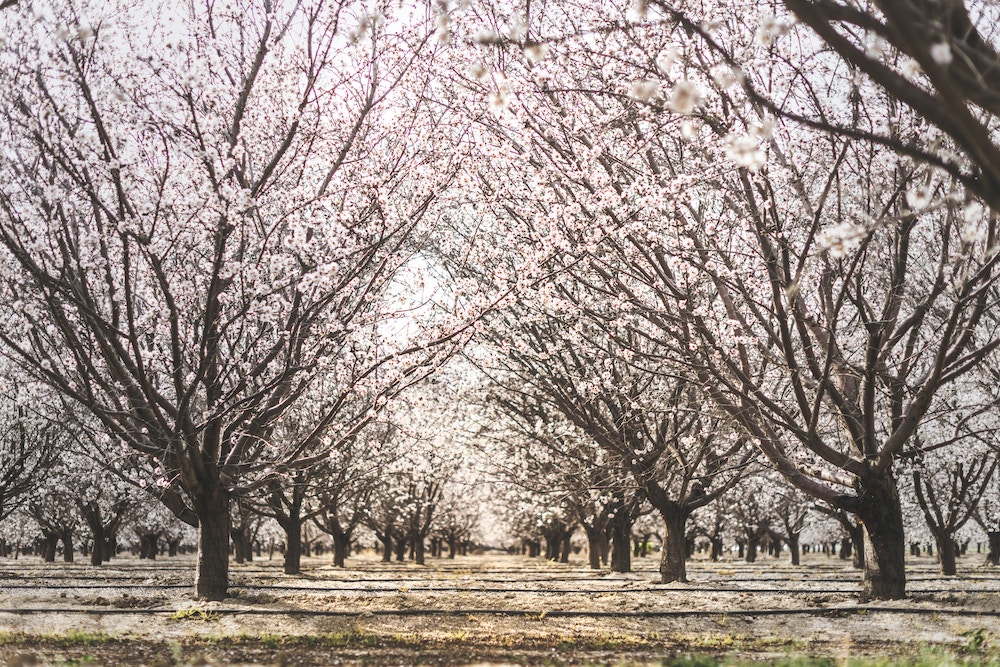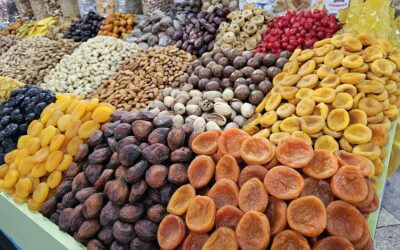If you are an almond grower in California, you’re no doubt aware of the challenges facing the industry today. While almonds are California’s chief agricultural export, drought conditions have made it more difficult and expensive to maintain almond orchards. Additionally, oversupply has led to a decrease in prices. To stay profitable and sustainable, many almond famers are turning to alternative crops. As an almond grower, should you diversify? What direction should you transition, and what will it mean for your operations?
Problems Facing Almond Farmers
Almonds are in high demand for everything from out-of-hand snacks to dairy alternatives and nut butter. That’s because they are highly nutritious and full of antioxidants, healthy fats, vitamins, and minerals. Plus, they can be enjoyed on nearly every diet, from veganism to keto. Almond orchards last about 25 years, making many of them a generational family business. Yet, challenges are still facing today’s farmers.
Drought and reductions in irrigation water
Twenty-three gallons of water are required to grow one ounce of almonds (about a handful). For just one almond, 1.1 gallons of water are needed. That’s a lot of water. Thankfully, winter rains have eased drought conditions, but that’s no guarantee there won’t be water challenges again in the future.
Pests and diseases
Fungal canker diseases are a huge issue for California almond orchards, resulting in significant tree losses. Pests such as navel orangeworm, peach twig borer, San Jose scale, and web-spinning mites are other issues facing almond farmers across the state.
Oversupply issues
Shipping challenges and inflation have led to a drop in exports for almond growers. And that means oversupply, or way more almonds being grown than can be sold. Revenues have, therefore, decreased while storage costs (for all the extra almonds) have gone up. It’s not a good equation for the farmers.
Alternative Crop Options
With all the challenges almonds farmers are facing, it’s no wonder they’re seeking alternative crop options.
Pistachios
Pistachio trees require less water than almonds and can be more profitable due to their higher price point. Pistachios are also more resilient to drought conditions, making them a more sustainable option for California growers. Pistachio cultivation is increasing, and California is the world’s largest producer of pistachios, owning 99% of the market.
Hemp
Another crop gaining popularity among California farmers is hemp. This versatile crop is used for a variety of products, including textiles, paper, and CBD products. Hemp requires less water than almonds and can be grown year-round, making it a more profitable and sustainable option for many almond growers.
Walnuts, pecans, and olives
While pistachios and hemp may be the biggest alternative crops for almond growers, there are other options, including walnuts, pecans, and olives. Each has pros and cons. For example, walnuts require less water than almonds and have a higher profit margin than pistachios, but they are more vulnerable to pests and diseases. Pecans are a high-value crop that can be grown in areas where almonds are not feasible, but they require several years to reach maturity. Olives are a low-maintenance crop that can be grown in dry conditions, but like pistachios, they need to be handled carefully when shipped.
Implications of Turning to Alternative Crops
While there may be less demand for almond shipments in the future, there will likely be an increase in demand for pistachio, hemp, and other alternative crop shipments. It’s important to be prepared to handle these changes and adjust your operations accordingly. You’ll need to work with a freight forwarder who can help you navigate the complexities of shipping these alternative crops.
At Cyclone Shipping, we understand the challenges facing almond growers in California today. That’s why we offer a range of freight forwarding services to help you streamline your operations and stay ahead of the curve. Whether you’re transitioning to pistachios or hemp, or exploring other alternative crops, we can help you develop a customized shipping solution that meets your unique needs. Contact us to learn more.




